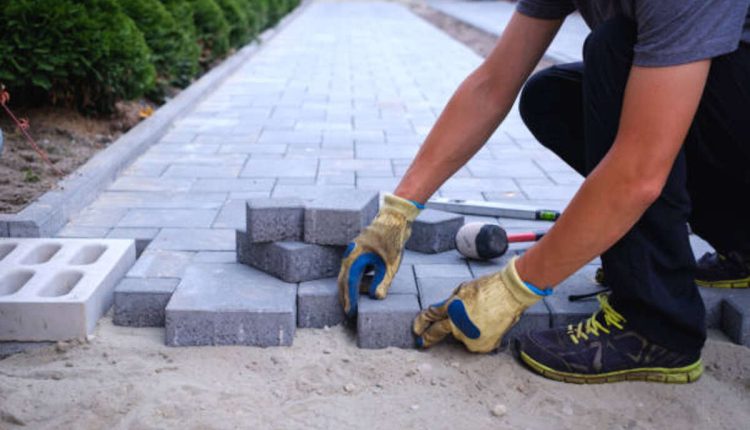Asphalt pavements offer more cost-effective and eco-friendly options than concrete and can easily be found across many locations. Find the best Asphalt Paving in Irvine.
Cost estimates for asphalt driveway installations depend on both scope and materials used, with cold mix asphalt being the least costly but best used only for repairs, not full installations. Porous asphalt may cost more but reduces runoff while saving on grading and leveling work.
Cost of Materials
Asphalt driveway paving can be an economical and durable option, depending on many factors like project scope, material costs, and labor expenses.
Material choice will have a dramatic impact on the cost of asphalt driveway paving. Gravel may be more economical but can shift and cause cracks later, while concrete provides more excellent durability – although more costly. Brick, cobblestone, and pavers also make great options, though their upkeep needs to be greater than gravel.
Other factors that can determine the cost of asphalt paving projects include driveway size and shape; for instance, curved driveways tend to be more costly than straight ones. Your project may also need extra features, like drainage systems or curbs and sidewalks; their added costs could dramatically increase your total paving expenses. Furthermore, consider your distance from an asphalt production facility; fuel requirements will affect how much asphalt material needs transporting before reaching its final destination, and this, in turn, has an impact on total project expenses.
Cost of Labor
Installing an asphalt driveway involves numerous expenses related to labor and equipment costs. These include hiring professionals as well as purchasing necessary machinery like a skid-steer loader, dump truck, industrial roller, and plate compactor to lay the pavement. Furthermore, oil prices could impact overall costs since these machines use gasoline for power.
Resurfacing an existing concrete driveway involves more than simply applying a fresh coat of pavement; you must first repair cracks with concrete-repair caulk and mill away old asphalt to bring the costs of preparation down. However, these additional costs can add significantly to total paving expenses.
Cold mix asphalt is more cost-effective, though it is best used for repairs rather than complete resurfacing projects. Hot-mix asphalt, on the other hand, is more durable and suitable for total resurfacing jobs. Specialty asphalts such as stamped, colored, and heated are more costly but add unique aesthetics that increase the curb appeal of homes. Prior to paving, contractors must check soil engineering reports as well as identify underground electric lines and plumbing. Failing to do this could result in costly damage later. Furthermore, any trees near where you plan to pave must be stump ground in order to prevent obstruction from getting in your way and impeding your driveway plans.
Cost of Demolition
Asphalt driveways are a popular choice because they’re affordable, durable, and easy to maintain. Furthermore, asphalt is safer for pedestrians than gravel and can withstand even extreme weather conditions without becoming discolored over time. Furthermore, its aesthetic options allow it to add even more curb appeal to your home.
When searching for a contractor to resurface your driveway, it’s essential that they possess a strong reputation, are licensed and insured, have all necessary equipment available, are reliable, and can complete their project quickly and efficiently. Check online reviews, as well as consult friends or family to identify potential paving contractors.
A new asphalt driveway typically costs between $7 and $13 per square foot when factoring both materials and labor expenses into account, depending on its size, surface prep needs, excavation/leveling needs, and homeowner preferences. Reclaimed asphalt can often be chosen instead of hot mix asphalt as this option is less costly and decreases waste dumped into landfills.
Cost of Overlay
Asphalt is a versatile material used in new construction as well as for resurfacing projects, with less expense than concrete when adequately maintained. Paving your driveway with asphalt also represents a more economical choice than pavers or brick options.
Installation starts by placing 8-10 inches of gravel as a foundation layer to help stabilize and prevent asphalt damage due to freezing temperatures. This step typically adds between $1-$2 to overall project costs.
An asphalt contractor will use a compactor to compress the material, creating an even surface. They may also add edging around the perimeter for a finished look.
Experienced asphalt contractors possess both the equipment and expertise to install quality driveways that will stand the test of time. While homeowners may be tempted to save money by doing the work themselves, doing it incorrectly could end up costing more in mistakes and extra expenses down the line. Also, make sure that references from previous customers can be provided along with checking credentials for your chosen contractor.
Cost of Porous Asphalt
Porous asphalt can be an ideal choice in areas with heavy rainfall, as it helps minimize runoff and improve drainage. Covered in crushed stone, this form of pavement allows rainwater to seep through instead of redirecting it directly into gutters, typically costing $8-15 per square foot more than standard asphalt options.
Asphalt pavements are also environmentally friendly because they filter stormwater before entering rivers, streams, and other bodies of water. Furthermore, this type of pavement promotes grass growth in parking lots and sidewalks to absorb rainfall more effectively while decreasing demands on storm sewer systems.
Though porous asphalt may be an environmentally conscious choice, it may not be ideal in cold climates due to ice and snow cracking the surface and being more prone to clogging; therefore, regular jet washing or vacuum street sweeper maintenance must be performed for its optimal functioning. Still, porous asphalt provides advantages over traditional pavements in terms of trapping pollutants or de-icing materials, being more affordable due to using less material for coverage; alternatively, it also requires fewer materials covering similar areas than concrete does.


